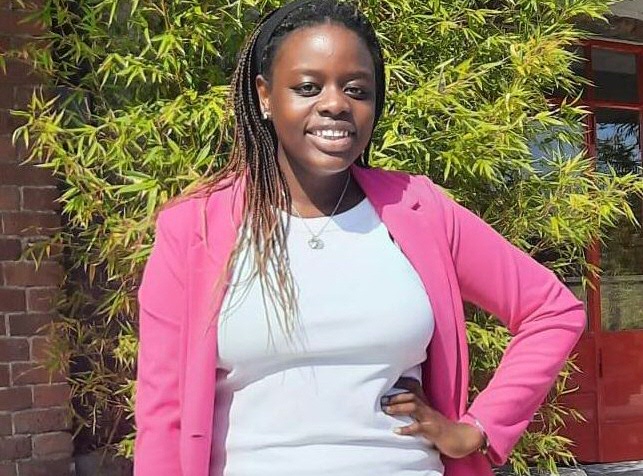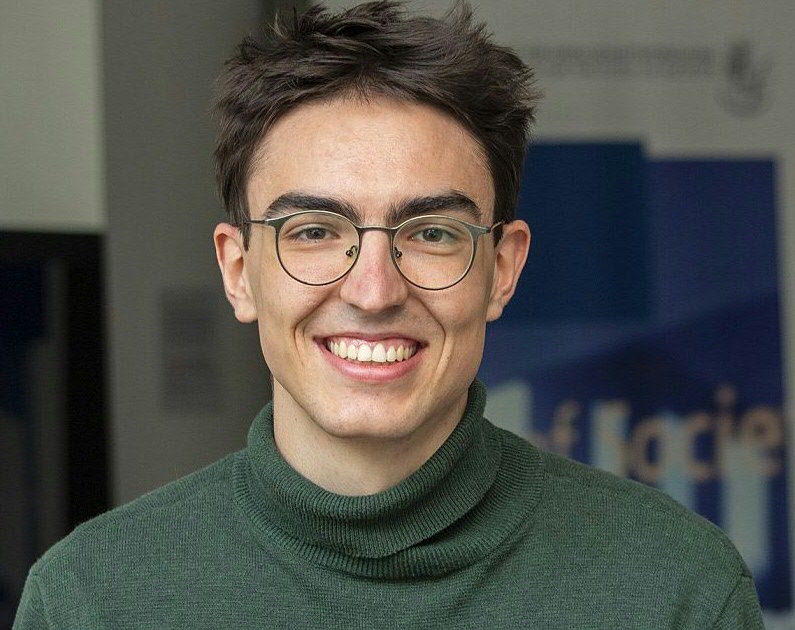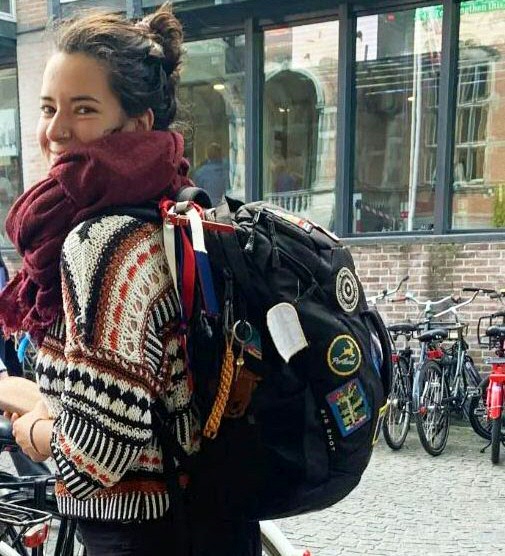
What impact did the recent economic crisis have on individuals' living and working conditions, on individuals' study and career choices, on social inequalities and social cohesion?
The Double Master's Programme in Demography and Social Inequality gives first-class students the opportunity to benefit from the outstanding expertise of two top-ranking universities. Participants of the programme spend one year studying at each university and graduate with two master's degrees: a Master of Sciences in Sociology and Social Research issued by the University of Cologne and a Master of Science in Population Studies issued by the University of Groningen in the Netherlands.
The international master's programme focuses on demographic change, population dynamics and the challenges faced by modern societies due to increasing life expectancy, decreasing birth rates and migration. Students will learn to apply advanced social research methods and data analysis, providing necessary tools to deal with current issues such as ageing, social inequality, family, integration and education, among others. Students will have the possibility of acquiring in-depth knowledge of these topics and developing interdisciplinary research skills.
For Dutch students, DAAD scholarships are available for the first year in Germany, see: https://bit.ly/duitsland-beurzen
Our programme is unique in its combination of analytical and social demography, its combination of quantitative and qualitative research methods, and its international, multidisciplinary and strong scientific orientation. Interactive ways of teaching are being employed by very enthusiastic and dedicated teachers. Within the Netherlands, Groningen is the only university offering an MSC in Population Studies.
| Semesters | ||||
|---|---|---|---|---|
| CoursesCourse Catalog > | 1a | 1b | 2a | 2b |
| Analysis of Cross-Section Data (9 EC) | ||||
| Markets, Institutions, Organisations (6 EC) | ||||
| Sociological Theories, or Social Structure and Social Inequality, or Comparative Social Research (6 EC) | ||||
| Special Methods of Analysis (9 EC) | ||||
| Analysis of Longitudinal Data (9 EC) | ||||
| Research Seminar on Social Inequality and Demography (15 EC) | ||||
| Social Change, or Family, Education, Migration, or Special Aspects, or Sociology and Social Research (6 EC) | ||||
| Semesters | ||||
|---|---|---|---|---|
| CoursesCourse Catalog > | 1a | 1b | 2a | 2b |
| Demographic Data and Analysis (5 EC) | ||||
| Population, Health and Place (5 EC) | ||||
| Qualitative Research for Policy & Practice (5 EC) | ||||
| Migration, Families and Households (5 EC) | ||||
| Optional course MSc Population Studies (5 EC) | ||||
| Population Projections & Sustainability (5 EC) | ||||
| Master's Thesis Population Studies (20 EC) | ||||
| Advanced Statistical Analysis (5 EC) | ||||
| Optional course MSc Population Studies (5 EC) | ||||
For more information about the courses in this programme, please visit: https://www.rug.nl/frw/education/master-info-frw/courses-master-population-studies and https://wiso.uni-koeln.de/en/studium/master/double-masters-programme-in-demography-and-social-inequality
| Specific requirements | More information |
|---|---|
| previous education |
A bachelor's degree with at least 15 ECTS (=18 ECTS in Germany) in the field of Sociology / Demography and at least 10 ECTS (= 12 ECTS in Germany) in Statistics. Demography courses may include Population Geographies, Migration and Development, Healthy Ageing and Population and Development. UG students Human Geography and Urban and Regional Planning have direct access to this double degree. To meet the requirements of 15 ECTS in the field of Sociology / Demography you can follow the Minor Population, Development and Wellbeing with the course 'Sociale Welvaart'. Dutch-speaking students will then meet the Sociology content-knowledge entry requirements. See the website: https://www.rug.nl/frw/education/minor-population-development-wellbeing |
| knowledge minimum |
Very good intercultural and social skills |
| professional experience |
Relevant practical experience is desirable |
| grade average |
Bachelor final grade equivalent to at least 2.7 (German grading system = a 7 in Dutch) |
| language test |
English on VWO level or one of the following equivalents:
A prospective student can always apply for an exemption from the English language test. The student needs to explain, and if required show proof of, why an exemption would be justified. It is up to the Admission Board to decide whether an exemption will be granted or not. |
| reference letter | |
| (motivation-) letter |
Letter of motivation in English explaining the reasons for applying to the Double Master's Programme (approximately 500 words); CV |
| other admission requirements |
The application deadline is 15 May. From the end of March onwards you can submit your application via the WiSo Faculty's Master's Application Portal: https://wiso.uni-koeln.de/en/studium/master/double-masters-programme-in-demography-and-social-inequality Students with a Dutch previous education can contact Billie de Haas (b.de.haas@rug.nl) to apply for the Double Degree. After that you can register for the Master Sociology and Social Research at the University of Cologne for your first year. You don't need to register in Groningen yet. You do that in your second year. Applicants who have not obtained their bachelor's degree in Germany or at the University of Groningen must apply additionally via uni-assist online and by post before 30 April and cover the handling fee of €75. When applying via uni-assist, please select the programme 'MSc in Sociology and Social Research' at the University of Cologne: https://www.uni-assist.de/ |
| Type of student | Deadline | Start course |
|---|---|---|
| Dutch students | 15 May 2026 | 01 September 2026 |
| EU/EEA students | 15 May 2026 | 01 September 2026 |
| non-EU/EEA students | 15 May 2026 | 01 September 2026 |
| Specific requirements | More information |
|---|---|
| previous education |
A bachelor's degree with at least 15 ECTS (=18 ECTS in Germany) in the field of Sociology / Demography and at least 10 ECTS (= 12 ECTS in Germany) in Statistics. Demography courses may include Population Geographies, Migration and Development, Healthy Ageing and Population and Development. UG students Human Geography and Urban and Regional Planning have direct access to this double degree. |
| additional subject |
To meet the requirements of 15 ECTS in the field of Sociology or Social Psychology or Demography you can follow the Minor Population, Development and Wellbeing with the course 'Sociale Welvaart'. Dutch-speaking students will then meet the Sociology content-knowledge entry requirements. See the website: https://www.rug.nl/frw/education/minor-population-development-wellbeing |
| knowledge minimum |
Very good intercultural and social skills |
| professional experience |
Relevant practical experience is desirable |
| grade average |
Bachelor final grade equivalent to at least 2.7 (German grading system) |
| language test |
English on VWO level or one of the following equivalents:
A prospective student can always apply for an exemption from the English language test. The student needs to explain, and if required show proof of, why an exemption would be justified. It is up to the Admission Board to decide whether an exemption will be granted or not. |
| reference letter | |
| (motivation-) letter |
Letter of motivation in English explaining the reasons for applying to the Double Master's Programme (approximately 500 words); CV |
| other admission requirements |
The application deadline is 15 May. From the end of March onwards you can submit your application via the WiSo Faculty's Master's Application Portal: https://wiso.uni-koeln.de/en/studium/master/double-masters-programme-in-demography-and-social-inequality Students with a Dutch previous education can contact Billie de Haas (b.de.haas@rug.nl) to apply for the Double Degree. After that you can register for the Master Sociology and Social Research at the University of Cologne for your first year. You don't need to register in Groningen yet. You do that in your second year.
Applicants who have not obtained their bachelor's degree in Germany or at the University of Groningen must apply additionally via uni-assist online and by post before 30 April and cover the handling fee of 75€. When applying via uni-assist, please select the programme 'MSc in Sociology and Social Research' at the University of Cologne: https://www.uni-assist.de/ |
| Exam | Minimum score |
|---|---|
| C2 Proficiency (formerly CPE) | C1 |
| IELTS overall band | 7 |
| TOEFL paper based | 100 |
| TOEFL computer based | 100 |
| TOEFL internet based | 100 |
| Type of student | Deadline | Start course |
|---|---|---|
| Dutch students | 15 May 2026 | 01 September 2026 |
| EU/EEA students | 15 May 2026 | 01 September 2026 |
| non-EU/EEA students | 15 May 2026 | 01 September 2026 |
| Nationality | Year | Fee | Programme form |
|---|---|---|---|
| EU/EEA | 2025-2026 | € 2601 | full-time |
| non-EU/EEA | 2025-2026 | € 21400 | full-time |
At the University of Cologne: Students pay a semester contribution for the duration of their studies All students: €265 per semester including a student travel card valid for public transport
At University of Groningen: Students pay a statutory tuition or an institutional fee during their second year: For details, please see: https://www.rug.nl/education/bachelor/international-students/financial-matters/
Scholarships: Check the Study in NL website for information about scholarships.
Students are expected to follow our Bring Your Own Device (BYOD) policy. For more detailed information about laptop requirements, please visit this webpagePractical information for:
The programme trains you in theories, and analytical and methodological tools from both sociology and demography. You will learn to conduct high quality research on how individuals' main life events (e.g. childbirth, education, marriage, occupation, divorce, death) both influence and are influenced by the social and geographical context in which they live.
The programme emphasizes the study of both advanced and developing societies from an unique interdisciplinary and dynamic perspective.
After graduation you can find work in business, the government, or non-governmental organisations (NGOs). Demographers are trained to work with and interpret large data files. You can use these skills to make policy or develop programmes. You can also pursue an academic career and apply for a PhD position.
During the programme at the University of Groningen we offer support for your career preparation.
Throughout the year we offer support for practical career preparation and employability skills. Workshops are given about leadership, job interviews and how to present yourself. More information about the FSS Career Services.
The Master's thesis topic is integrated in the research theme of the Population Research Centre: “Population and Wellbeing in Context”. See: https://www.rug.nl/research/ursi/prc/research/ and https://wiso.uni-koeln.de/en/studium/master/double-masters-programme-in-demography-and-social-inequality
These research themes comprises topics such as: population
decline, population ageing, social and economic inequality, global
migration, life of migrants, healthy ageing in society, the
sociology of the family, households, residence, studies on the
labor market and working life, causes of death, child health,
nutrition, access to health care, place making of elderly, and the
assessment of social policies.
The double degree programme clearly reflects the major
characteristics of the research programmes at PRC and by focusing
on both the macro (population) and micro level (the demographic
behaviour of people); by adopting multi-disciplinary perspectives
(demography, epidemiology, anthropology, geography, social ageing,
nutrition); by teaching both quantitative and qualitative research
methods; by focusing on the translation of research into policies
or interventions.
The students are being taught the theories, methods and skills that
the different teachers apply in their research. They participate in
seminars and discussion groups in an active research environment
including guest lectures and seminars by established professionals
from other demographic institutions. Part of the second year in
Groningen is the participation in the Dutch Demography Day - a
conference for demographers - and an excursion to the Netherlands
Interdisciplinary Demographic Institute in The Hague.

After completing my bachelor's degree in Uganda, my primary objective was to further my knowledge in the field of demography, which led me to pursue the Master's programme Population studies at the University of Groningen. Upon my arrival in Groningen, I initially faced unfamiliarity with the university's system and operations. Fortunately, I received invaluable assistance from professors and approachable students, enabling me to quickly adapt to the intricacies of the university's functioning.
The University of Groningen employs cutting-edge technology, ensuring seamless navigation through campus programs such as lectures, exams, and registration. Moreover, the provision of timely email reminders for important tasks minimizes the risk of missing crucial deadlines. I am particularly grateful for the exceptional support extended by Billie de Haas, the head of the department, who diligently assisted me in overcoming various challenges. Even when faced with problems for which immediate solutions were unavailable, she promptly directed me to the appropriate resources.
The university community possesses commendable proficiency in English, facilitating effective communication. This linguistic advantage ensures that individuals encountered during my time at the university were capable of engaging in meaningful dialogue. The students themselves are not only adept communicators but also reliable friends, always willing to offer assistance both inside and outside the classroom. Furthermore, the student ncommunity regularly organizes events designed to foster connections among peers and staff members. Such initiatives create an open and approachable atmosphere, facilitating interactions with faculty and fellow students.
Among the many courses offered, two notable ones are "Qualitative Research Methods for Policy and Practice" and "Qualitative Research Method." These courses provide valuable insights into complex social phenomena, human behavior, and lived experiences. Widely employed in disciplines such as sociology, anthropology, psychology, education, and healthcare, qualitative research utilizes rigorous and systematic approaches to data collection, analysis, and interpretation. It helps uncover profound meanings and understand the diverse perspectives of individuals and communities.
However, it is important to address the housing predicament faced by students. The demand for accommodation exceeds the available supply, posing challenges in securing suitable living arrangements. As an international student from a non-EU country, I encountered difficulties in finding housing. While numerous housing options can be found online, exercising caution and prudently selecting trustworthy sources becomes imperative.
- Delilah Namutebi

The DDM Demography and Social Inequality provides students with tools to observe and model population dynamics, explicitly considering the role of spatial context. Coming from the field of (micro-)sociology, I especially benefitted from insights into macro-level processes interacting with (and informing) individual-level decision-making.
Also, having a mainly quantitative research background, I was interested in how statistics could be enriched through a more qualitative, conceptually rich perspective – and how the findings we produce as researchers can be taken up for policy-advice and public opinion- and decision-making.
At the Population Research Centre you find both; empirically open, qualitative research aiming to understand individuals’ living environment and thought processes, and quantitative research allowing generalization to a broader population. The idea that the research we conduct needs also to able to inform political decision-making and should be translated for a broader audience is strongly engraved in the spirit of the programme.
At the same time, the interdisciplinary and international setting at the faculty has provided me with an opportunity to grow – also personally. I have studied alongside students from all over the world, providing their unique perspective and experiences going beyond the German-Dutch context I was used to. Additionally, especially within the context of the one-year master and the four-block-system common in Dutch higher education institutions, students are really asked to coordinate tasks arising from the requirements of the various courses.
At the same time, the wide array of topics covered in lectures, seminars and workshops at the faculty of spatial sciences itself and at other faculties (in which students can take part within the context of elective courses) allows students to get a broad overview of promising areas of research and develop their own research interest. This experience has further encouraged me to pursue a career in academia and a PhD.
- Elias Hofmann
Photo credits: MPIfG/AD

After finishing my bachelor's degree in statistics, studying the double Master's Degree in Social Demography (University Pompeu Fabra and University of Groningen) was the best combination to link my interest in social sciences with my existing academic background. Through new inspiring perspectives brought by its broad international context and great professional possibilities, this master's degree is perfect for those who want to develop new skills for social sciences.
This master’s degree allowed me to expand my knowledge and interests on a wide range of fields, from geographies of health inequalities to migration dynamics, while being given the concrete tools to practice research in these areas. The methodology courses were my personal highlight. The combination of qualitative and quantitative methods courses provided me with a resourceful toolkit that I will be confidently able to draw upon in any future academic and professional projects. Moreover, the engaging learning methods and the constant contact with international community make this challenging learning path into an enjoyable master's degree.
Last but not least, students are able apply the new skills taking on different professional opportunities, from research internships within the faculty or in other local and national organisations and companies. With the synthesis of all this aspects, from content and methods courses to its context, I feel prepared and well equipped for future professional experiences both in the public and private sector.
- Júlia Tena